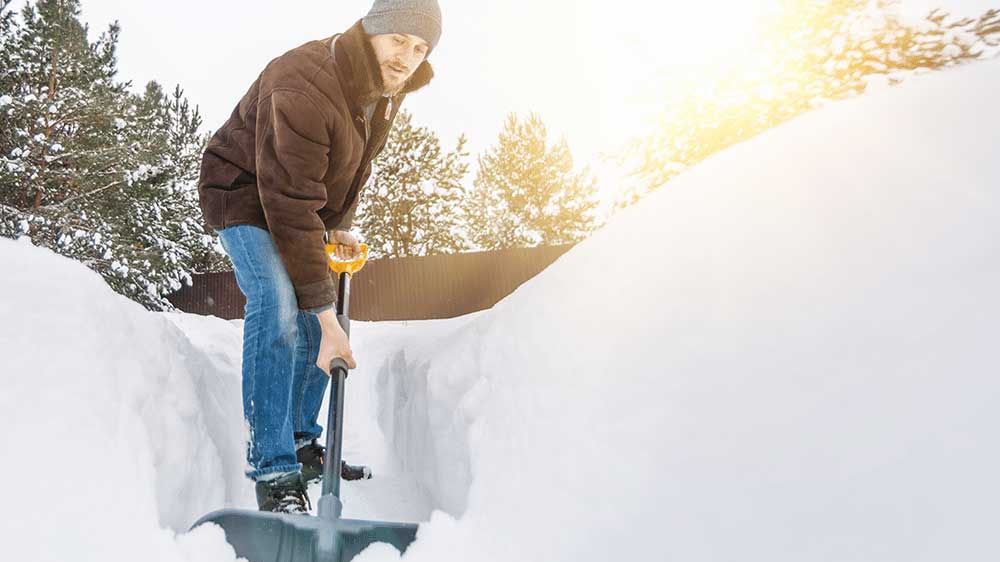Cold weather and your heart: How to protect your heart this winter
December 11, 2024Categories: Heart Care
Your heart is an important organ. A body temperature that’s too high or too low can put stress on your heart. Which is why it’s important to be mindful of strenuous activities like shoveling snow during the cold winter months.
How does cold weather affect your heart?
Multiple scientific trials have shown heart attacks and heart problems increase during the winter months due to the cold temperatures.
When temperatures drop low, blood vessels and arteries clamp down and begin to constrict. This constriction decreases your blood flow and body’s delivery of oxygen, causing a spike in blood pressure which can increase the formation of blood clots.
Also, during cold-weather months, your heart must work extra hard to maintain a healthy body temperature. This makes activities like shoveling equivalent to running on a treadmill.
Find out your risk for heart disease
Tips for shoveling
Before shoveling
- Avoid drinking coffee, smoking and doing things that increase blood pressure and heart rate.
- Lightly stretch/warm up to prepare your body.
- Don’t eat a heavy meal right before going outside.
- Stay hydrated and take regular breaks
- Bundle up in layers to help regulate body temperature
If you experience symptoms such as chest pain, nausea, shortness of breath or shoulder and neck pain, while shoveling snow, stop what you’re doing, get inside and consider calling 911.
How to dress appropriately
While the weather forecast may show freezing temperatures, you also need to be careful of overheating in the winter. Wearing too much clothing prevents your body from releasing heat. This causes blood vessels to over-dilate and your blood pressure to go down, which can lead to heart attacks. Dress in layers you can easily remove to make sure you’re regulating your body heat.
Other winter-related health risks to remember
Cold weather can impact so much of your day-to-day life. Here are a few other things that can affect your heart health during the winter months:
- Missing prescription refill because of weather can be dangerous for your heart
- Flu and other health problems in the winter can put more strain on your heart
- Holidays and holiday parties may increase your stress, alcohol and sugary food intake and decrease your physical activity
Winter weather brings unique challenges for heart health, but by staying informed and taking precautions, you can enjoy the season safely. Remember to dress warmly, pace yourself and listen to your body. If you feel unwell, don’t hesitate to seek help. By prioritizing your health and safety, you can enjoy the season while keeping your heart strong.
Do you know how healthy your heart is? Find out by taking our health risk assessment!
This blog was medically reviewed by a MercyOne provider.

